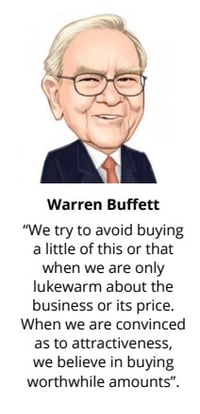
BEATING THE MARKET | THE SEVEN GOLDEN RULES
Mr. Warren Buffett has been the single most successful investor since the late 1950s. and 7 golden rules of investing. how to make money in the stock market.
STOCK MARKET
Mr. Warren Buffett
To start, let me introduce you to Warren Buffet. Mr. Buffett has been the single most successful investor since the late 1950s. Let’s set the stage. The year is 1984. Recently, there had arisen a growing consensus that the stock market was fully efficient, called “Efficient Market Theory.” Basically, academics and investors were declaring it impossible for someone to consistently pick stocks that would beat the overall market average, because everything was priced in already. Columbia Business School hosted an epic debate as a contest between Michael Jensen, a professor from the University of Rochester and one of the leading voices of the Efficient Market Theory versus Warren Buffett, famed stock-picker. Jensen went first. He argued that if you flipped a coin 50 times, there would be someone that happened to get heads 50 times in a row, but that didn’t mean that that person had skill. He called picking stocks a “coin flip”.
Ten Buffett spoke. He said “let’s imagine that we had a coin flipping contest. And that of course we could have some lucky winners and losers. But then, let’s assume that all the winners had something in common. What if all the winners of the coin-flipping contest came from Omaha, or had an unusual technique. Wouldn’t you be curious to find out what made this high concentration of winners? Buffett then went through the investment performance of nine successful investors that just so happened to all practice the same methodology and all had the same teachers, Benjamin Graham and David Dodd. He called them “The Super investors of Graham-and Doddsville.” Buffett was unequivocally declared the winner after his masterful speech. No one could doubt the numbers or the logic. The clear conclusion is that you can be successful in picking stocks, and it requires following the investment principles of Graham and Dodd and Buffett.
Buffett references Benjamin Graham and David L. Dodd. Together Graham and Dodd wrote Security Analysis in 1934. Tis book, still in print after several editions, has influenced many great investors since the very first publication. Additionally, Benjamin Graham wrote ' The Intelligent Investor ' in 1949. Mr. Buffett first read this book in 1950 and considers it, “by far the best book on investing ever written.” Benjamin Graham is considered the father of value investing and so we start here. As you read the article make a note of the key concepts that are referenced. Some are repeated several times






Being successful at anything requires following a set of rules. Good rules are the accumulation of decades of wisdom summed up into the few components that really matter. Successful football players win because they avoid penalties and because of the way they train. Successful students get A’s because of the way they study. Investing in the stock market is no different, except that when you succeed in investing you make money - a lot of money. Take Warren Buffett for example; he started out with $10,000 and turned it into a net worth of $60,000,000,000 (Tat’s 60 BILLION!) . But he’s not alone. Peter Lynch, Bill Ru-ane, Walter Schloss, Bill Miller, Charlie Munger, Joel Greenblatt, and many others generated similar extraordinary investment returns, consistently, over a long-term time horizon. Each successful fund manager’s style was slightly different, but if you study them each carefully you’ll start to see significant patterns. We summed these patterns into Seven Golden Rules. So, without further ado, here are the Seven Golden Rules of Successful Investing so that you can crush it in the stock market.
RULE 1: THINK LONG-TERM
Trying to time the stock market or risking it all to “double your money in a year” is at best speculating, at worst gambling. You may as well just take your money to Vegas and lose it there. Those who are able to successfully navigate the stock market are not speculators or gamblers, they are investors. Investors know they can beat the market because they think differently, they think smarter, and they think longer-term. “Time horizon arbitrage” means that if investors learn to think long-term and can see beyond the daily and quarterly noise, they can gain a real upper hand. In 1964, American Express was a great company but the stock was getting hammered due to an insurance scandal. The company had to pay millions of dollars in fines due to accidentally underwriting barrels of vegetable oil that turned out to be water. Tat is exactly the time when Warren Buffett began purchasing the stock. The best investors look beyond short term distress and keep their eyes on the long-term horizon.
“Only buy something that you’d be perfectly happy to hold if the market shut down for 10 years.” -Warren Bufett
RULE 2: GOOD COMPANIES MAKE GOOD INVESTMENTS
People need to understand that investing is not like placing a bet on whether the Cowboys will cover the spread against the Packers in the big game. Investing is not trying to get the quarterly press release a microsecond before the other person. It is not even about trying to predict which stock that you think will go up the most. Fundamental Investing is buying a tangible piece of a business, or a share of that business. And your investment portfolio (the collection of all the different shares you own) is only as good as sum of the companies in that portfolio. If you buy shares of high quality companies at reasonable prices, you’ll end up with a high quality portfolio with less risk. It’s as simple as that. Good companies are ones that have a unique advantage that others can’t copy. Good companies are ones that generate high returns on capital. Good companies don’t need to borrow a lot because their business is self-financing.
“It’s far better to buy a wonderful company at a fair price than a fair company at a wonderful price "
” Warren Buffet".


RULE 3: BUY WITH A MARGIN OF SAFETY
Nearly every professional investor began his career reading Benjamin Graham’s, The Intelligent Investor. Warren Buffett called it, “by far, the best book on investing ever written.” What makes it so special? One of the reasons is because it introduced the important concept “Margin of Safety.” In investing, a margin of safety is formed when one buys an investment at less than its value, while using conservative assumptions. The idea of a margin of safety is that you want to buy a business at a price that is low enough that your assessment could be completely wrong and you wouldn’t lose much.
“Heads I win. Tails I don’t lose much.”


RULE 4: DO YOU OWN HOMEWORK AND OWN WHAT YOU KNOW
There is no substitute for your own work. Buying a stock because CNBC recommended it, or because your uncle recommended it, or the stock chart looks good is a sure way to lose money. Successful investors know what they own. They buy stocks of companies with products they believe in. Successful investors go the extra mile to analyze the financials of the company to make sure they’re not missing anything. Remember, most of the extraordinary gains made in the stock market come after a stock is punished or after it has already risen a lot, but you’re not going to have the conviction to stick with it unless you really know the company.
“You have to know what you own, and why you own it."
”Peter Lynch".


RULE 5: DON’T FOLLOW THE HERD, STAY CALM AND RATIONAL


The typical buyer’s decision is usually heavily influenced by those around him: buy when others are buying, sell when others are selling. Unfortunately, this is a recipe that is bound to backfire. The best investors are ones that can fight this urge and remain calm through a storm, and remain on the sidelines through a bubble. The world’s greatest investor Warren Buffett said it best, ”Be fearful when others are greedy, and be greedy when others are fearful!"
RULE 6:DON’T PUT ALL YOUR EGGS IN ONE BASKET, BUT DON’T HAVE TOO MANY BASKETS, EITHER


Diversification is one of the most critical strategies for your portfolio so that if one stock blows up, it won’t sink the entire ship. As much as we think we won’t make a mistake, we will. Even the masters do and that is why we can’t put all our eggs in one basket. There’s power in diversification. However, research suggests that 90% of diversification benefits can be obtained in most markets with a portfolio of just over 20 stocks. The more you diversify beyond that, the less you know about each investment (See Rule #4). Your first and second best ideas are always better than your 100th best idea, so while diversifying is crucial, make your best ideas count!
RULE 7: NEVER STOP LEARNING
Perhaps the most important rule is learn, learn more, and then keep learning. Te fun thing about investing is that the markets are always diferent and companies are constantly changing. Never stop learning about businesses, never stop learning from other great investors, and never stop learning from your own mistakes. Humility and an eagerness to learn are two traits found in all of the great investors. Even Warren Bufett credits his partner Charlie Munger with teaching him that it’s better to buy a great company at a fair price than a fair company at a great price.
“Te game of life is the game of everlasting learning. At least it is if you want to win.” -Charlie Munger


8TH BONUS RULE WHEN YOU MAKE A LOT MON- EY, FIND MEANINGFUL WAYS TO GIVE IT BACK.
Bill & Melinda Gates took their fortune and lifted millions of people out of poverty through their foundation. Warren Buffett has done the same with his billions. If you make millions or even billions of dollars through the concepts taught by YIS, we hope that you will take it and make the world a better place. And even if you don’t make millions, you can find important ways to give back to your community. Giving, can be done not only with money, but also with your time, your energy and your talents. At YIS, we believe it’s possible to really make our investments count. That’s why we’re investing in you.






